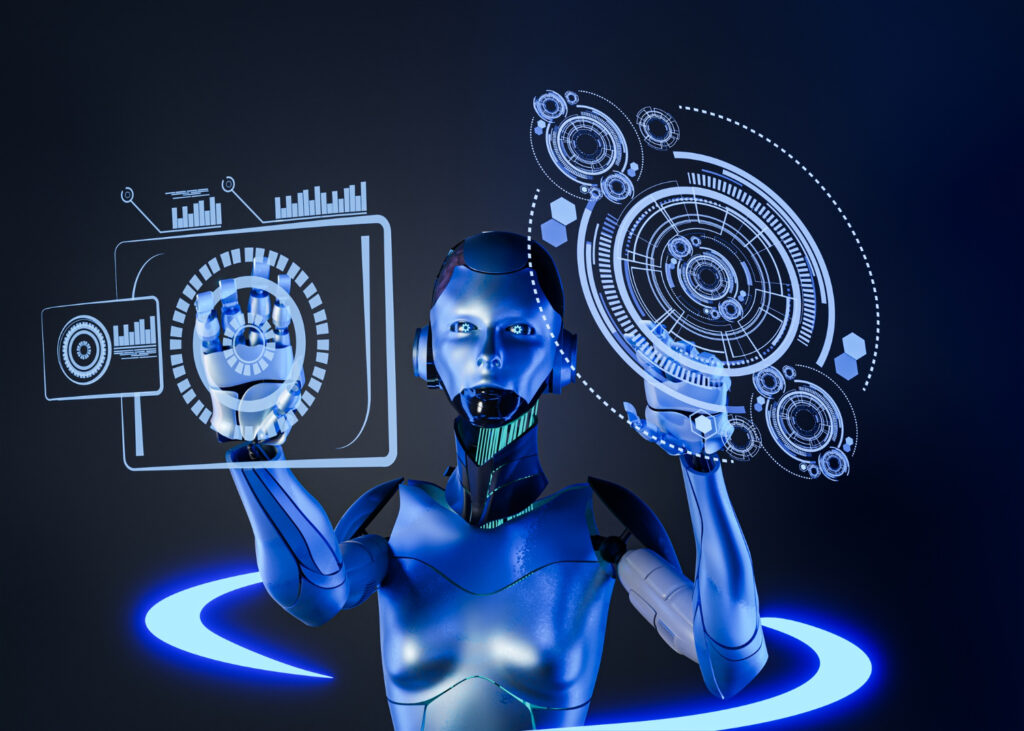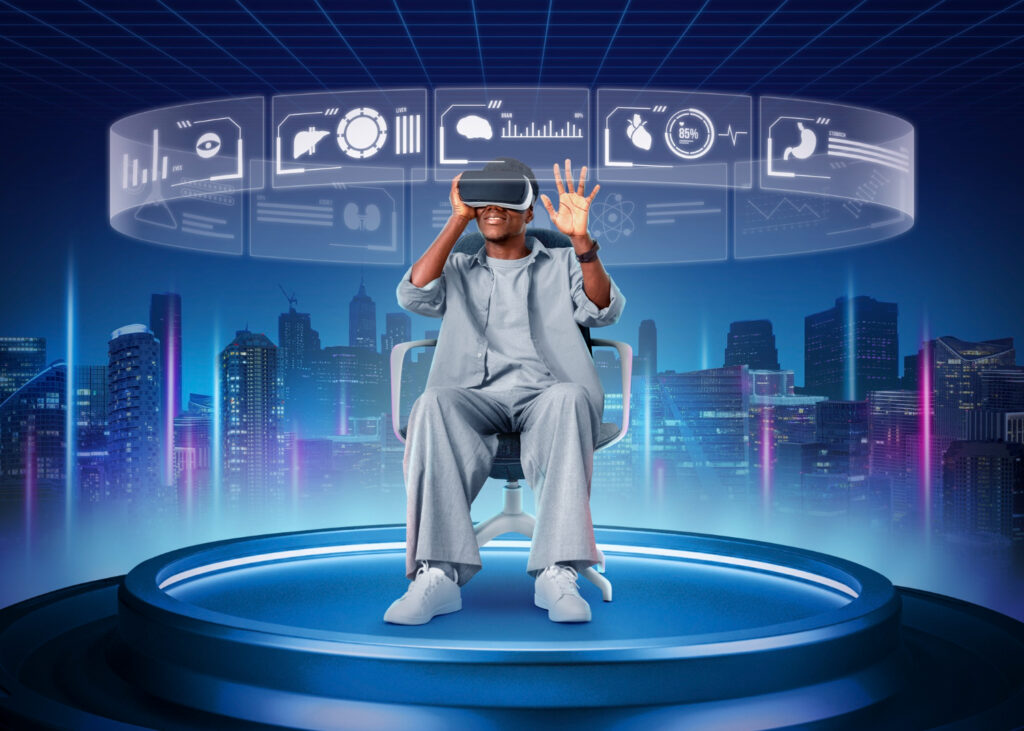Technology Giants Control the Global Security

Introduction
Technology has become the cornerstone of modern security efforts. With the rise of digitalization and globalization, the ability to monitor, defend, and respond to threats has become increasingly reliant on advanced technological solutions. At the forefront of this transformation are the world’s leading technology companies, whose influence extends far beyond the realms of commerce and innovation.
Table of Contents
Role of Technology in Global Security
Surveillance and Monitoring Systems
One of the primary ways in which technology giants control global security is through the development and deployment of surveillance and monitoring systems. These systems, ranging from closed-circuit cameras to satellite imagery, provide governments and security agencies with unprecedented visibility into both physical and digital spaces. Advanced analytics, powered by artificial intelligence and machine learning algorithms, enable the automatic detection of suspicious activities and patterns, enhancing the efficiency and effectiveness of surveillance efforts.
Cybersecurity Infrastructure

In an era dominated by digital networks and information technology, cybersecurity has emerged as a critical component of global security. Technology giants invest heavily in developing robust cybersecurity infrastructure to protect against cyber threats such as hacking, malware, and data breaches. Through the implementation of encryption protocols, firewalls, and intrusion detection systems, these companies safeguard sensitive data and digital assets from unauthorized access and exploitation.
Military Applications
The influence of technology giants extends into the realm of military applications and defense technologies. From drones and autonomous vehicles to advanced weapon systems, these companies are at the forefront of developing cutting-edge technologies for defense and national security purposes. The integration of artificial intelligence and robotics in military operations has the potential to revolutionize warfare, providing both strategic advantages and ethical dilemmas.
Dominance of Technology Giants
Market Share and Revenue
The dominance of technology giants in the global security landscape is reflected in their market share and revenue. Companies such as Google, Amazon, and Microsoft command vast resources and enjoy significant market power in their respective domains. With access to vast amounts of data and capital, these companies have the capacity to influence government policies, shape industry standards, and dictate the direction of technological innovation.
Influence on Government Policies
Technology giants wield considerable influence over government policies and regulations, particularly in the areas of surveillance, cybersecurity, and defense. Through lobbying efforts, campaign contributions, and strategic partnerships, these companies exert pressure on lawmakers and regulatory agencies to enact policies favorable to their interests. The revolving door between the public and private sectors further blurs the lines between corporate and governmental interests, raising concerns about regulatory capture and undue influence.
Expansion into Security-Related Industries
In recent years, technology giants have expanded their reach into security-related industries, including law enforcement, intelligence, and defense contracting. Through acquisitions, partnerships, and internal research and development efforts, these companies are diversifying their revenue streams and positioning themselves as indispensable partners in the global security ecosystem. However, this consolidation of power raises questions about accountability, transparency, and the concentration of economic and political power in the hands of a few corporate entities.
Surveillance Technologies
Development of Advanced Surveillance Systems
Technology giants are at the forefront of developing advanced surveillance systems capable of monitoring individuals, communities, and entire populations in real-time. From facial recognition software to predictive analytics algorithms, these systems enable the collection, analysis, and interpretation of vast amounts of data for security and law enforcement purposes. While proponents argue that such technologies enhance public safety and deter criminal activity, critics warn of the potential for abuse, discrimination, and violations of civil liberties.
Use of AI and Machine Learning

The integration of artificial intelligence and machine learning algorithms has revolutionized the field of surveillance, enabling the automation of data analysis and decision-making processes. These technologies can identify patterns, anomalies, and correlations in vast datasets, allowing security agencies to detect threats and predict future events with unprecedented accuracy. However, the use of AI in surveillance raises ethical questions about privacy, consent, and the potential for algorithmic bias and discrimination.
Implications for Privacy and Civil Liberties
The proliferation of surveillance technologies poses significant challenges to privacy and civil liberties in the digital age. The indiscriminate collection of personal data, combined with the widespread deployment of surveillance cameras and sensors, erodes individual freedoms and undermines democratic principles. Moreover, the lack of transparency and accountability surrounding surveillance programs exacerbates public distrust and skepticism towards government and corporate entities.
Cybersecurity Infrastructure
Protection Against Cyber Threats
In response to the growing threat of cyber attacks and data breaches, technology giants invest heavily in developing robust cybersecurity infrastructure to protect digital assets and critical infrastructure. Through the deployment of encryption protocols, firewalls, and intrusion detection systems, these companies defend against unauthorized access, malware infections, and other cyber threats. Moreover, advancements in threat intelligence and incident response capabilities enable proactive detection and mitigation of security vulnerabilities before they can be exploited by malicious actors.
Role of Tech Giants
Technology giants play a central role in shaping the future of cybersecurity through innovation, collaboration, and investment. By leveraging their expertise in software development, cloud computing, and data analytics, these companies drive the development of new security technologies and standards. Additionally, through partnerships with governments, academia, and industry stakeholders, they contribute to the collective effort to enhance cybersecurity resilience and combat cyber threats on a global scale.
Challenges For Technology Giants Control the Global Security
Monopoly Power and Lack of Competition
One of the primary concerns surrounding the dominance of technology giants in the global security landscape is their monopoly power and lack of competition. As a handful of companies control the majority of market share and revenue in key sectors such as surveillance, cybersecurity, and defense, there is a risk of anti-competitive behavior, price fixing, and consumer exploitation. Moreover, the consolidation of power in the hands of a few corporate entities stifles innovation, limits consumer choice, and undermines market competitiveness.
Risks of Data Breaches and Cyber Attacks

Despite their efforts to bolster cybersecurity defenses, technology giants remain vulnerable to data breaches and cyber attacks due to the sheer scale and complexity of their operations. Malicious actors, including nation-states, criminal syndicates, and hacktivist groups, constantly probe for weaknesses in digital networks and software systems, seeking to steal sensitive information, disrupt operations, or cause financial harm. The repercussions of a successful cyber attack can be catastrophic, leading to financial losses, reputational damage, and legal liabilities for both companies and their customers.
Threats to Democratic Governance
The growing influence of technology giants in shaping global security raises concerns about the erosion of democratic governance and sovereignty. As these companies amass vast amounts of data and leverage advanced technologies to influence public opinion, political discourse, and electoral outcomes, they wield considerable power over the democratic process. Moreover, their close ties to government agencies and intelligence services raise questions about accountability, transparency, and the separation of powers in democratic societies.
Regulatory Framework
Government Efforts to Regulate Tech Giants
In response to growing public concerns about the unchecked power and influence of technology giants, governments around the world are taking steps to regulate their activities and safeguard consumer rights. Antitrust investigations, data privacy laws, and cybersecurity regulations are being introduced to curb monopolistic practices, protect personal data, and promote fair competition in the digital marketplace. However, the effectiveness of these regulatory measures remains a subject of debate, as enforcement mechanisms vary from country to country and are often hindered by political and economic considerations.
Antitrust Investigations and Legal Challenges
Several technology giants have faced scrutiny from antitrust regulators and legal challenges over their market dominance and anti-competitive behavior. Cases alleging monopolistic practices, price discrimination, and abuse of market power have resulted in multi-billion dollar fines, divestitures, and changes to business practices. However, the complexity of modern digital markets, combined with the global reach of technology companies, presents challenges for antitrust enforcement and judicial oversight.
Balancing Innovation with Consumer Protection
Finding the right balance between fostering innovation and protecting consumer rights is a key challenge for policymakers and regulators in the digital age. While technology giants drive economic growth, job creation, and technological advancement, they also pose risks to privacy, competition, and democratic governance. Striking a balance between promoting innovation and safeguarding public interests requires a comprehensive regulatory framework that addresses the unique challenges posed by the digital economy while preserving the benefits of technological progress.
Future Trends
Emergence of New Technologies in Security

The future of global security will be shaped by emerging technologies such as artificial intelligence, quantum computing, and biotechnology. These transformative technologies have the potential to revolutionize surveillance, cybersecurity, and defense capabilities, providing both opportunities and challenges for policymakers, industry stakeholders, and civil society. From autonomous drones and intelligent sensors to genetic engineering and neural implants, the convergence of technology and security will redefine the boundaries of human capabilities and ethical norms.
Shift Towards Decentralized Solutions
In response to concerns about the centralization of power and control in the hands of technology giants, there is a growing trend towards decentralized and open-source solutions in the security domain. Blockchain technology, for example, offers a decentralized and tamper-proof framework for storing and transferring sensitive information, reducing reliance on centralized authorities and intermediaries. Similarly, initiatives such as the OpenAI project aim to democratize access to artificial intelligence and promote collaboration among researchers, developers, and end-users.
Potential for Collaboration
Despite the challenges posed by the dominance of technology giants, there is also potential for collaboration between these companies and governments to address shared security challenges. Public-private partnerships, joint research initiatives, and information sharing arrangements can facilitate the exchange of expertise, resources, and best practices in areas such as cybersecurity, counterterrorism, and disaster response. By harnessing the collective capabilities of governments, industry stakeholders, and civil society, we can develop innovative solutions to safeguard global security in an increasingly complex and interconnected world.
Public Perception
Trust and Accountability
Public trust and confidence in technology companies are essential for maintaining social cohesion and democratic governance. However, recent controversies and scandals involving data privacy breaches, algorithmic bias, and corporate misconduct have eroded public trust in technology giants. To rebuild trust and restore confidence, companies must demonstrate transparency, accountability, and ethical leadership in their operations and decision-making processes. This includes respecting user privacy, disclosing data practices, and engaging in meaningful dialogue with stakeholders.
Debates Over the Role of Big Tech
The role of big tech in society is a subject of intense debate and scrutiny, with proponents and critics offering contrasting views on the impact of technology on democracy, privacy, and human rights. While some argue that technology companies have democratized access to information, empowered individuals, and facilitated economic growth, others raise concerns about their unchecked power, exploitation of user data, and influence over public discourse. Addressing these complex challenges requires a nuanced understanding of the interplay between technology, society, and governance.
Calls for Greater Transparency
In response to mounting public pressure and regulatory scrutiny, technology giants are facing calls for greater transparency and accountability in their operations. This includes disclosing data practices, algorithmic decision-making processes, and the impact of their products and services on society. Moreover, companies are being urged to adopt ethical standards, codes of conduct, and independent oversight mechanisms to ensure that their actions align with democratic values and human rights principles.
Case Studies (Technology Giants Control the Global Security)
Examples of Tech Giants Influencing Global Security
Several case studies illustrate the ways in which technology giants influence global security through their products, services, and partnerships. For example, Google’s collaboration with government agencies on Project Maven, an AI-powered military drone program, sparked controversy and employee protests over ethical concerns. Similarly, Amazon’s provision of cloud computing services to government agencies and defense contractors has raised questions about the company’s role in enabling surveillance and warfare. These examples highlight the complex interplay between technology, ethics, and geopolitics in the digital age.
Impact of Controversies
The impact of controversies involving technology giants extends beyond public relations and legal liabilities to shape public opinion, policy decisions, and market dynamics. Instances of data breaches, privacy violations, and regulatory fines can tarnish the reputation of companies and erode consumer trust, leading to financial losses and long-term damage to brand value. Moreover, the fallout from controversies can influence government regulations, industry standards, and consumer preferences, driving changes in corporate behavior and market dynamics.
Conclusion Technology Giants Control The Global Security
In conclusion, technology giants wield significant influence over global security through their products, services, and partnerships. From surveillance and cybersecurity to military applications and defense contracting, these companies play a central role in shaping the future of security in an increasingly digital and interconnected world. However, their dominance raises concerns about monopoly power, privacy violations, and threats to democratic governance. Addressing these challenges requires a concerted effort by governments, industry stakeholders, and civil society to promote transparency, accountability, and ethical leadership in the technology sector.
If you found our content on Technology Giants Control the Global Security helpful don’t forget to share it on your social media: Twitter
More Articles: Home
FAQs About Technology Giants Control The Global Security
How do technology giants control the global security?
Technology giants control the global security through their development and deployment of surveillance systems, cybersecurity infrastructure, and military applications, among other factors. Their advanced technologies and vast resources play a significant role in shaping the landscape of security worldwide.
What are some examples of surveillance technologies used by technology giants?
Surveillance technologies employed by technology giants include closed-circuit cameras, satellite imagery, facial recognition software, and predictive analytics algorithms. These systems enable the monitoring and analysis of vast amounts of data for security and law enforcement purposes.
How do technology giants contribute to cybersecurity infrastructure?
Technology giants invest heavily in developing cybersecurity infrastructure to protect against cyber threats such as hacking, malware, and data breaches. Through the deployment of encryption protocols, firewalls, and threat detection systems, they safeguard digital assets and critical infrastructure from unauthorized access and exploitation.
What role do technology giants play in military applications and defense technologies?
Technology giants are at the forefront of developing advanced military applications and defense technologies, including drones, autonomous vehicles, and weapon systems. Their expertise in artificial intelligence, robotics, and data analytics is instrumental in enhancing military capabilities and national security.
How do technology giants influence government policies and regulations related to security?
Technology giants wield considerable influence over government policies and regulations through lobbying efforts, campaign contributions, and strategic partnerships. They often shape the development of laws and regulations governing surveillance, cybersecurity, and defense, influencing the direction of technological innovation and industry standards.
What are some challenges and concerns associated with the dominance of technology giants in global security?
Challenges associated with the dominance of technology giants include monopoly power, lack of competition, risks of data breaches and cyber attacks, and threats to democratic governance. Addressing these concerns requires a comprehensive regulatory framework that balances innovation with consumer protection and promotes transparency and accountability.
How do technology giants address ethical considerations in the development and deployment of security technologies?
Technology giants are increasingly being called upon to address ethical considerations in the development and deployment of security technologies, such as privacy, consent, and algorithmic bias. They must demonstrate transparency, accountability, and ethical leadership in their operations and decision-making processes to maintain public trust and confidence.
What are some future trends in the intersection of technology and global security?
Future trends in technology and global security include the emergence of new technologies such as artificial intelligence, quantum computing, and biotechnology, the shift towards decentralized solutions, and potential collaborations between technology giants and governments to address shared security challenges.
How can individuals and organizations stay informed about developments in technology and global security?
Individuals and organizations can stay informed about developments in technology and global security by following reputable news sources, participating in industry conferences and events, and engaging with experts and thought leaders in the field. Additionally, continuous learning and professional development can help individuals stay abreast of emerging trends and best practices in security technology.




